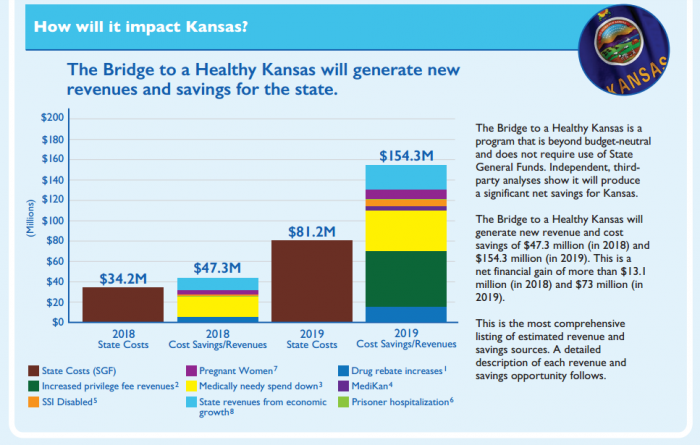Kansas Lawmakers Vote for Medicaid Expansion Under the ACA
Both houses of the Kansas State Legislature voted to move ahead with Medicaid expansion after the GOP’s failed bid to repeal the Affordable Care Act.

Source: Thinkstock
- UPDATE: Kansas Governor Sam Brownback has vetoed the legislation, calling Medicaid expansion "irresponsible and unsustainable."
Kansas state lawmakers in the House and Senate have voted to approve Medicaid expansion under the Affordable Care Act, although the bill still faces the prospect of a veto from Governor Sam Brownback.
The 25-14 Senate vote on the Bridge to a Healthy Kansas Act follows a House vote of 81-44, bringing Democrats and Republicans together in the GOP-controlled legislature.
The Kansas Hospital Association (KHA) has lauded the lawmakers’ approval of the bill, which would use federal and state government funding to deliver affordable care to low-income and disabled adults between the ages of 18 and 65 otherwise ineligible for Medicaid.
Additionally, eligibility for the program would require unemployed individuals and those working less than 20 hours a week to utilize state-approved workforce training and job search resources. Full-time students are exempt from this requirement, as are parents, by the discretion of the Kansas Department of Health and Environment.
These requirements and exemptions are notably similar to some of the last-minute Medicaid amendments made to the failed American Health Care Act.
The Bridge to a Healthy Kansas Program, or “KanCare,” is a state coverage initiative by the KHA to provide affordable healthcare to 150,000 Kansans. KanCare relies on the tactical use of federal funds to build savings on State General Funds, which are state revenues generated from taxes.
Federal matching funds help pay for a large chunk of what is required to support KanCare, according to an infographic. State funds will only account for 6 percent of spending on KanCare in fiscal year (FY) 2018, which equates to $34.2 million. The matched federal funding in FY 2018 from the Medicaid expansion would be $520.8 million.
If this funding continued under KanCare, then FY 2019 funding would be broken down into a 7 percent contribution of $81.2 million and matched with a $1 billion federal contribution. KanCare would cap state contributions at 10 percent by FY 2020.
The federal funding match would allow the state to remain budget-neutral, proponents say. Since KanCare contributions do use State General Funds, there is high potential for improved cost-to-revenue ratios according to nonpartisan research organizations in the state of Kansas.

Source: Kansas Hospital Association
KanCare provides an opportunity to save $47.3 million in healthcare costs in 2018 on maternity care, drug rebates, and general medical needs along with growth in the state’s healthcare industry.
State costs will rise in the following year to $81.2 million, but would save around $154.3 million on care costs for SSI disability programs, privilege fees, MediKan (Kansas Medicaid/CHIP programs), and increased savings in categories like maternity care and drug rebates.
State Medicaid costs will be offset by net financial gains of 13.1 million in 2018 and $73 million by 2019, KSA predicts.
A Bridge to a Healthy Kansas also presents savings opportunities for patients under MediKan, a public assistance coverage option, and uncompensated care costs. Matched federal funding puts less pressure on state funds to provide Kansans these services and adequately reimburse care facilities and providers.
“Kansas needs to be vigilant and take advantage of the opportunity we have today. Speaker Paul Ryan confirmed the Affordable Care Act (ACA) is the law of the land. Time is of the essence,” said Tom Bell, president and CEO, Kansas Hospital Association.
“Last week’s action on the federal level on the American Health Care Act (AHCA) removes any doubt that Medicaid expansion will remain in place. It also confirms that the Kansas House and Senate were right to consider and advance legislation to expand KanCare this session.”
